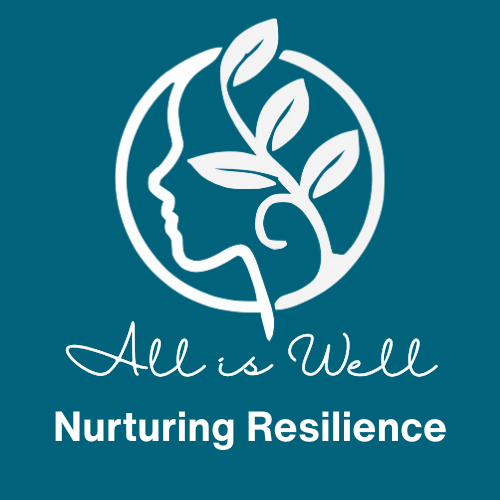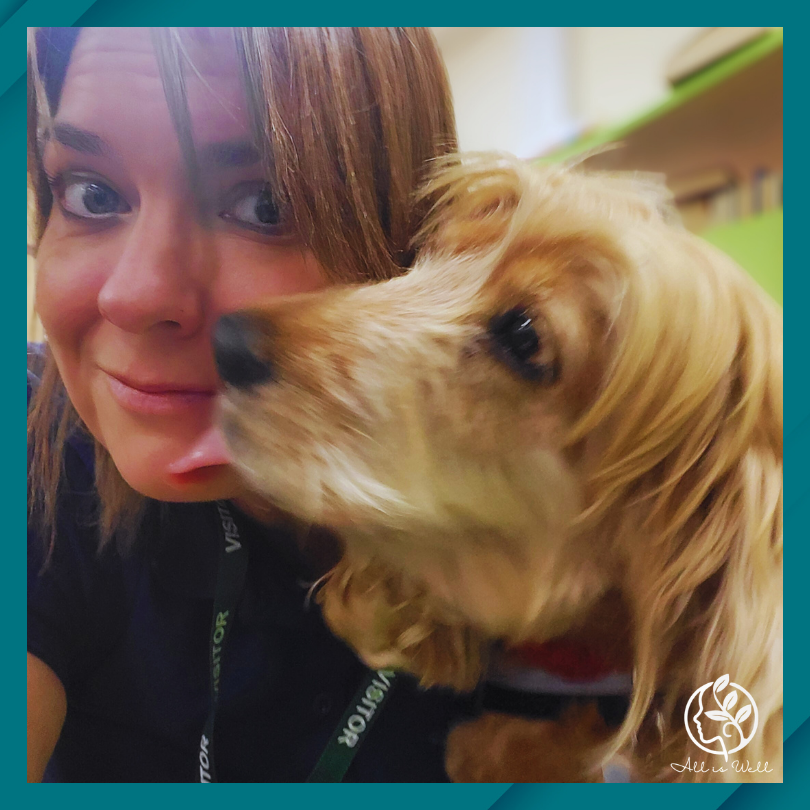What Children (And Communities) Teach Us About Resilience
Written from my settee on a very chilly November evening, watching a community rally around someone who needs it, with a dog snoring by my side who’s seen more resilience in children than most therapists will in a lifetime, and me trying to process how beautifully humans can show up when it matters.
This week, someone very close to our family needed help. The kind of help that requires community, generosity, and people choosing to show up when they absolutely don’t have to.
And they did.
Her sister, parents, and close friends have been leading the way, organising, rallying, pouring their hearts into supporting her. And from the edges, I’ve been watching and feeling genuinely humbled by what’s unfolded.
Support has come from all directions, friends, old acquaintances, people who haven’t spoken to her in years, complete strangers who simply wanted to help. Messages, donations, and small acts of kindness that restore your faith in humans.
It’s been a powerful reminder that yes, humans can be cruel. We see that every day in the news, in systems that fail people, in small acts of unkindness we’ve almost stopped noticing.
But humans can also be absolutely, devastatingly incredible.
Maybe resilience isn’t the absence of hardship, but the choice to keep believing in goodness anyway. To keep showing up. To keep trusting. To keep trying, even when every logical part of you says, “protect yourself and don’t bother.”
The Children Who Keep Teaching Me
I see this every single week in the children Lola and I work with.
Children who’ve experienced things they should never have faced. Their nervous systems have learned that the world can be unsafe, adults unreliable, and trust something that breaks easily.
That’s what polyvagal theory explains so well: our bodies are constantly scanning for safety or threat. When threat becomes the norm, your system learns to stay on guard. It’s not negativity…it’s survival.
And yet, despite all that wiring, despite their bodies whispering “don’t trust this,” I watch them try again.
They laugh.
They play.
They lean into Lola’s calm presence.
They tell me what scares them.
They show up to sessions even when it’s hard.
That’s not the Instagram version of resilience - the “bounce back, stay positive” myth. This is the real version - showing up scared. Reaching out when connection has hurt you before. Trying again when every cell says not to.
What Lola Sees (That I’m Still Learning)
Lola doesn’t know polyvagal theory. She hasn’t read trauma textbooks. She can’t explain co-regulation.
But she knows when a child is carrying something heavy.
And slowly, sometimes across weeks, sometimes in a single moment, children’s nervous systems respond to her. Shoulders drop, breathing deepens, the hypervigilance eases. Their bodies pick up on her regulated state and think, “maybe we don’t have to be on high alert right now.”
Once a child feels safe enough? That’s when courage shows up.
That’s when they laugh again, trust again, try again.
Not because the trauma is “healed,” but because they’ve had enough moments of safety for their system to believe connection might not be dangerous.
The Adults Who Keep Showing Up Too
This week reminded me that adults do the same. Many who helped John’s cousin are dealing with their own struggles. Their own pressures. Their own heavy things. Life hasn’t been gentle with them either.
And yet they chose generosity anyway.
They chose kindness when cynicism would have been easier…and completely justified.
Teachers and Teaching Assistants do this daily. They keep showing up for children who test limits, push boundaries, and say harsh things because they’re checking whether this adult will leave too.
And those teachers stay. They believe. They try again.
Support workers at places like Home-Start do it too. They meet families in crisis with care, respect, and zero judgment.
That’s courage. Quiet, unglamorous, uncelebrated courage.
Humans Are Cruel AND Incredible
Both things are true. Humans can be cruel. Systems can fail. Trauma is real and lasting.
AND
Humans can be breathtakingly kind. Communities can rally. Children can choose trust again.
Small acts of care ripple further than we ever see.
If you only see the cruelty, you miss the quiet revolutionaries choosing kindness every day.
If you only see the good, you bypass the reality people are living.
The Choice We Get to Make
We don’t get to choose whether life is hard. But we do get to choose whether we shut down completely or stay open to the possibility that kindness still exists.
The children I work with teach me this every week.
The community around John’s cousin taught me this again this week.
Here’s to the Ones Who Keep Choosing
To the children who keep trying, even when their bodies tell them it’s safer not to.
To the teachers who keep believing, even on the hardest days.
To the communities who rally, even while carrying their own weight.
To the support workers who offer dignity instead of judgment.
To the therapy dogs who prove that calm presence is its own kind of revolution.
And to anyone choosing to stay soft in a world that asks you to harden.
That’s not weakness. That’s courage…the quiet, world changing kind.
That’s what keeps me showing up.
If your school or organisation wants to explore trauma-informed support that holds space for both the struggle and the possibility of healing, we’d love to chat.
If you’re in Warrington, Widnes, Liverpool (or anywhere nearby), and your school, charity, or community organisation wants to explore trauma-informed support with a therapy dog who actually gets children and young people, we’d love to chat.
Because real change happens when we honour both: the hard stuff and the resilience and when children feel safe enough to soften, connect, and grow.
And finally…
If you’d like to support John’s cousin Nicola in getting the treatment she so urgently needs, here is the link to her GoFundMe page. Every share, every donation, every kind word makes a difference. Thank you x



